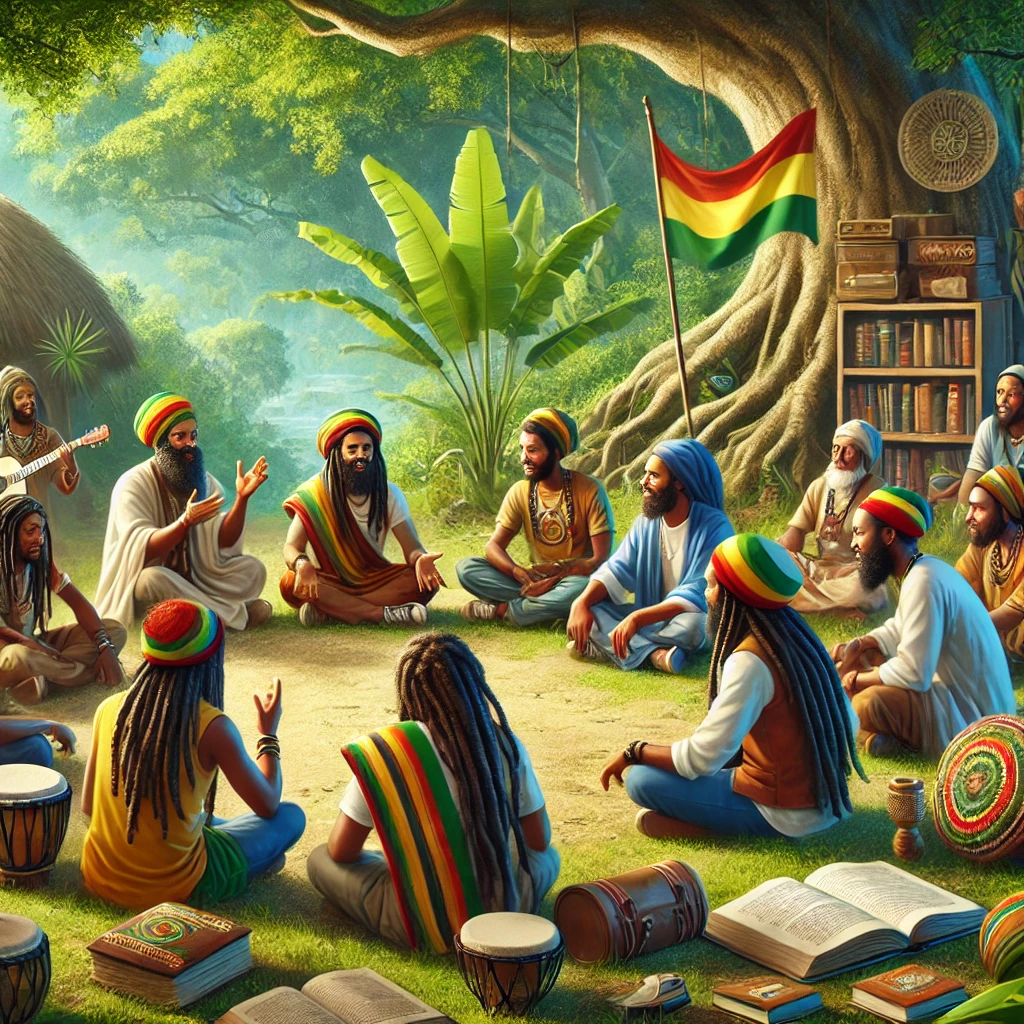Bless up, my brethren and sistren! Today, mi want to share some insights on how Rastafarians view education and knowledge. Education is not just about formal schooling; it’s about spiritual growth, understanding one’s roots, and gaining wisdom from di world around us.
Spiritual and Cultural Education
For Rastafarians, true education begins wid a deep understanding of our spiritual and cultural roots. We place great importance on learning about our African heritage, di teachings of Haile Selassie I, and di principles of Rastafarianism. Dis spiritual education is essential for developing a strong sense of identity and purpose.
The Teachings of Haile Selassie I
Haile Selassie I, di former Emperor of Ethiopia, is a central figure in Rastafarianism. His teachings emphasize unity, justice, and peace. Rastafarians study his speeches and writings to gain wisdom and guidance. His famous speech to the United Nations in 1963, which inspired Bob Marley’s song “War,” remains a powerful source of inspiration for many.
African Heritage and History
Understanding African history and heritage is crucial for Rastafarians. We study the rich cultures and traditions of Africa to connect with our roots and honor our ancestors. Dis knowledge fosters a sense of pride and resilience, reminding us of our strength and potential.
The Importance of Reasoning
Reasoning sessions are a cornerstone of Rastafarian education. These informal gatherings provide a space for brethren and sistren to discuss spiritual, social, and personal issues. Through open dialogue and shared experiences, we gain insights and wisdom from each other.
Learning Through Dialogue
In reasoning sessions, everyone has a voice. We discuss a wide range of topics, from spiritual teachings to current events. Dis open exchange of ideas helps us grow intellectually and spiritually. It encourages critical thinking and allows us to see different perspectives.
Community and Support
Reasoning sessions also strengthen our sense of community. By sharing our thoughts and experiences, we support each other’s growth and well-being. Dis communal learning fosters unity and reinforces the bonds between brethren and sistren.
Practical Knowledge and Skills
Rastafarians value practical knowledge and skills dat contribute to self-sufficiency and sustainability. We believe in living in harmony with nature and developing skills dat support dis way of life.
Ital Living
Ital living is a holistic approach to health and wellness dat emphasizes natural and unprocessed foods. Learning about organic farming, herbal medicine, and sustainable practices is an essential part of our education. Dis knowledge helps us maintain a healthy lifestyle and care for di environment.
Craftsmanship and Arts
Many Rastafarians engage in traditional crafts and arts, such as woodworking, weaving, and music. These skills are not only a means of self-expression but also a way to preserve our cultural heritage. Learning and mastering these crafts is an important aspect of our education.
Formal Education and Beyond
While spiritual and practical education are vital, Rastafarians also recognize the value of formal education. We encourage the pursuit of academic knowledge and professional skills to empower ourselves and contribute positively to society.
Balancing Formal and Informal Education
Rastafarians strive to balance formal education wid spiritual and practical learning. By integrating these different forms of knowledge, we develop a well-rounded understanding of di world and our place in it. Dis holistic approach to education helps us become better individuals and community members.
Conclusion
Education and knowledge are fundamental to Rastafarian life. From spiritual teachings and cultural heritage to practical skills and formal education, we seek to grow in wisdom and understanding. By embracing a holistic approach to learning, we empower ourselves and uplift our community. One love!

